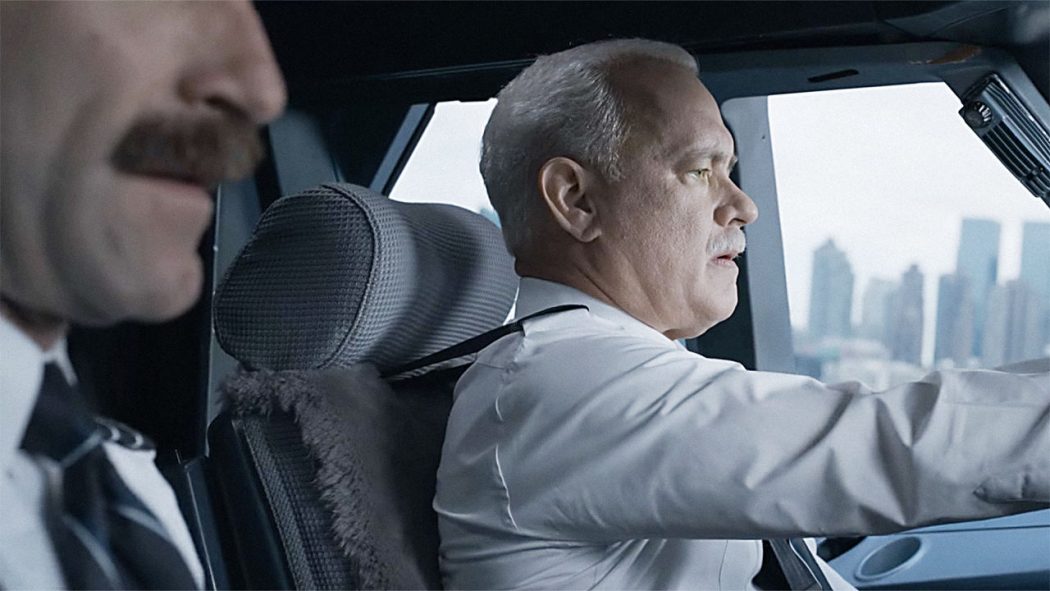Both as an actor and as a director, Clint Eastwood has
explored his fascination with the conflicted hero narrative. World weary and downtrodden
seems to be the resting constitution of most of his protagonists and their
stories usually test their personal doubts with a greater conflict that effects
the good of their environments. In this year’s “Sully” Tom Hanks takes on this
position as the real life commercial airplane pilot Captain Chesley Sullenberger,
who in 2009 safely landed an American Airlines jet of 155 passengers along the
surface of the Hudson river with no casualties. The story caught the aged,
life-long pilot in the middle of a media storm where he and his co-pilot Jeff
Skiles (Aaron Eckhart) was crowned heroes by many, while simultaneously
enduring pressure and scrutiny by the organization investigating the crash.
Using Sully’s tested psychosis as the story’s framing
device, much of the story is told in flashback, as well as the occasional PTSD-induced nightmare sequence. Hanks plays Sully with a lot of insular angst and quietude
and uses his eyes to convey his character’s discomfort and mounting self-doubt.
It’s not a particularly showy performance and it leans further into Hanks’ transition
into that of a senior performer. Eckhart is then given more room to be vocal
and expressive about the nature of their character’s odd position within the
media and their stressful behind-the-scenes case.
The film is also interested in the notion of experienced
intuition verses blind empiricism, as the board of investigators keep telling both
pilots that every simulation demonstrates that they should have been able to safely
make it back to the tarmac without risking a dangerous water-landing (as well
as destroying expensive company equipment.) This argument, as presented by the
film, could be read as a condemnation of expert analysis and a celebration of
blue-collar, folksy instinct but the conclusion to this case wisely factors
in human experience and emotional error as a variable itself, saving the
picture from slipping too far into an anti-science, finger-wagging appeal to
the viewer’s emotions.
The special effects
and the flight recreations are both familiar to the experience of flying and the
fear that comes with its risks. The
daydreams and nightmare sequences are realistic and spiked with harrowing
9/11 imagery, which ties in subtly with New York and America’s exaltation of Sully’s
rescue landing.
“Sully” is a competent drama. Hanks is a professional,
Eastwood knows exactly how to tell this story and the screenplay aims low
enough for both of them to hit their intended marks. If the film does have a
flaw it’s Todd Komarnicki’s successful but safe adaptation of Sullenberger’s
book “Highest Duty.” Kormarnicki tries to weave in Sully’s past as a war pilot
and crop duster to show his experience and his relationship with the air, but
that gesture is never really paid off or integrated well enough to fully inform
the character or the plot. While studied and precise, the screenplay lacks the
amount of narrative ambition it needed to propel the picture from good actor’s
showcase to being truly great film.
Originally Published in the Idaho State Journal - Sep/2016


